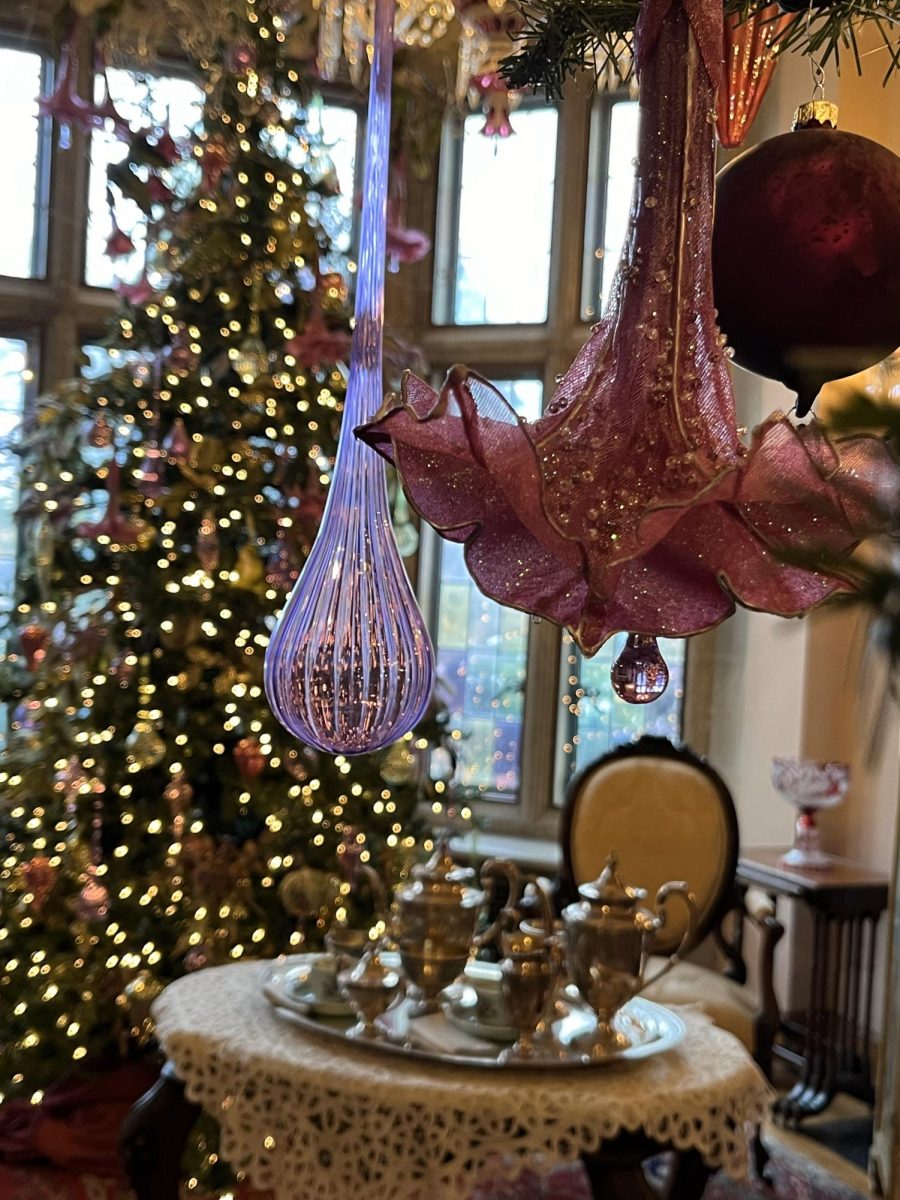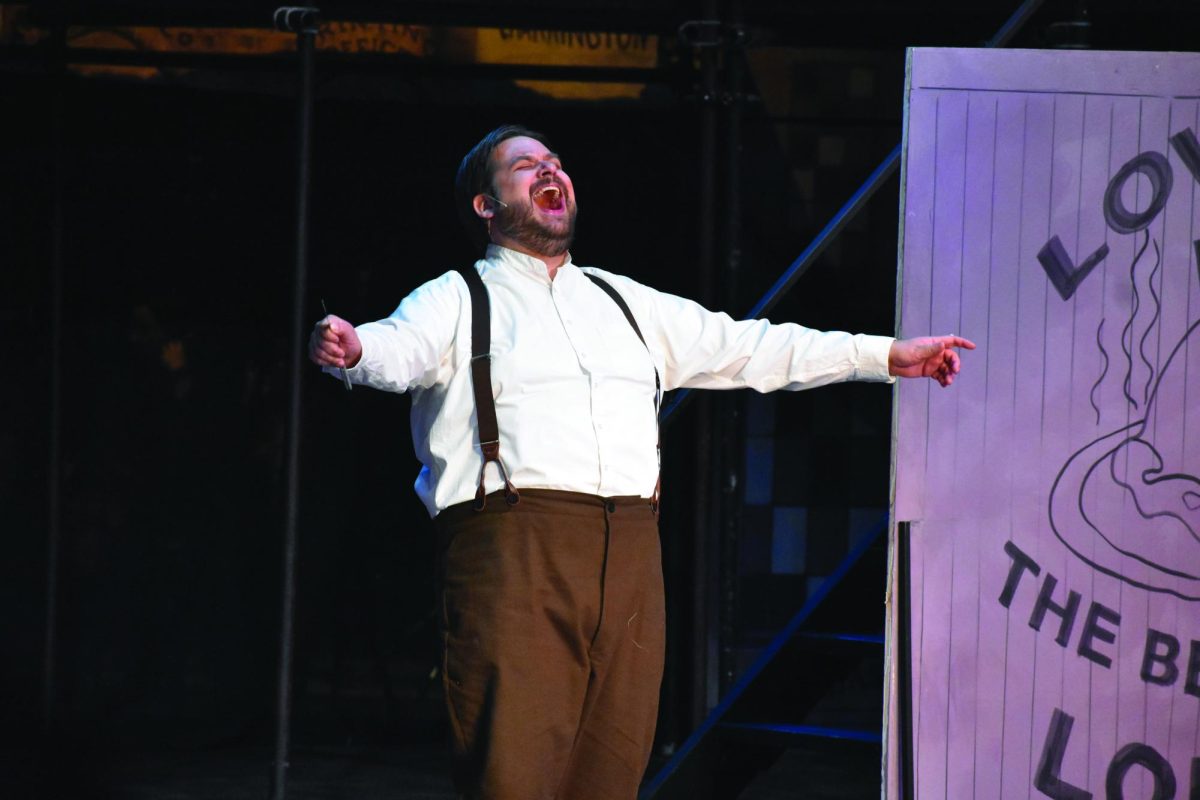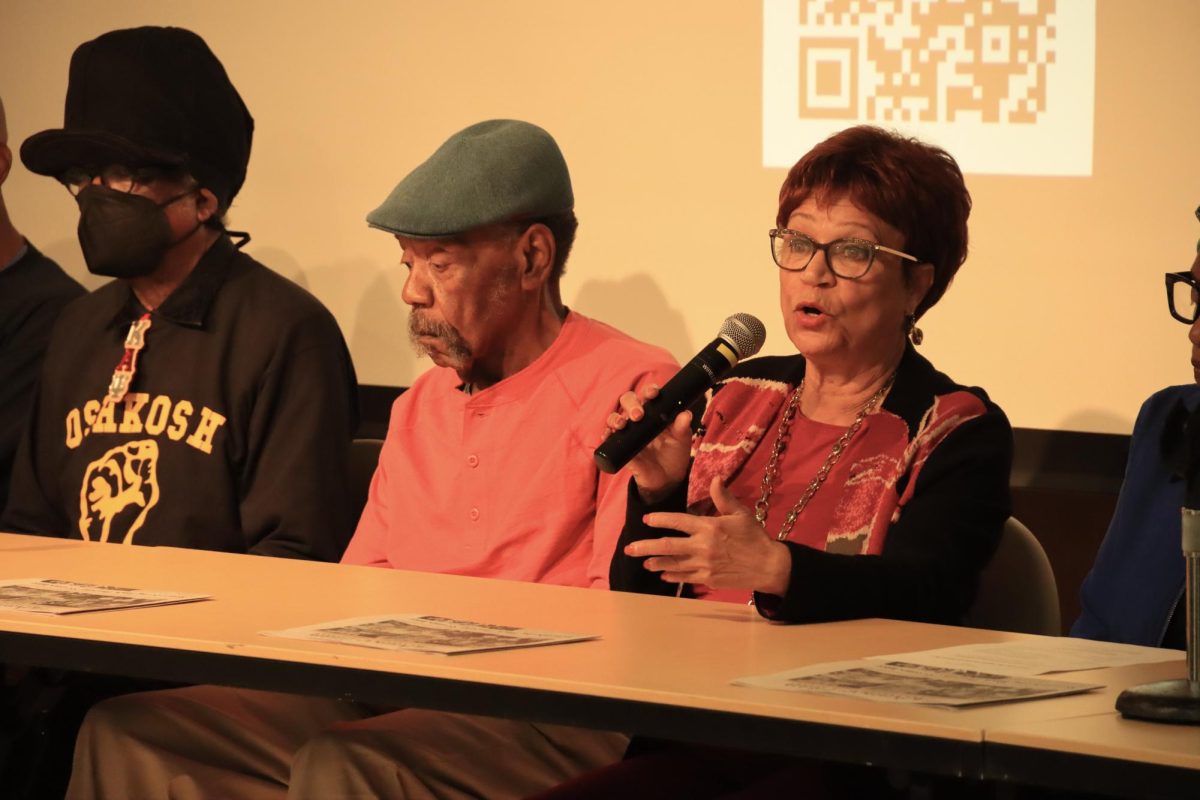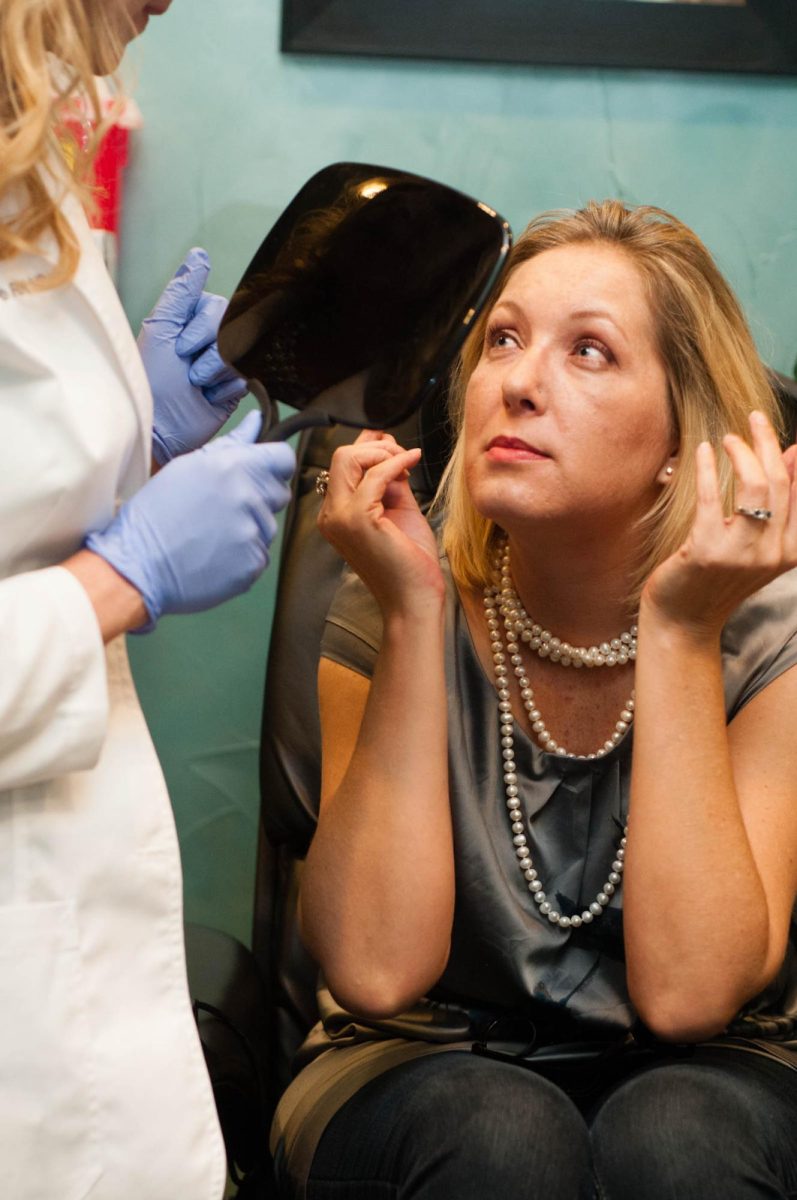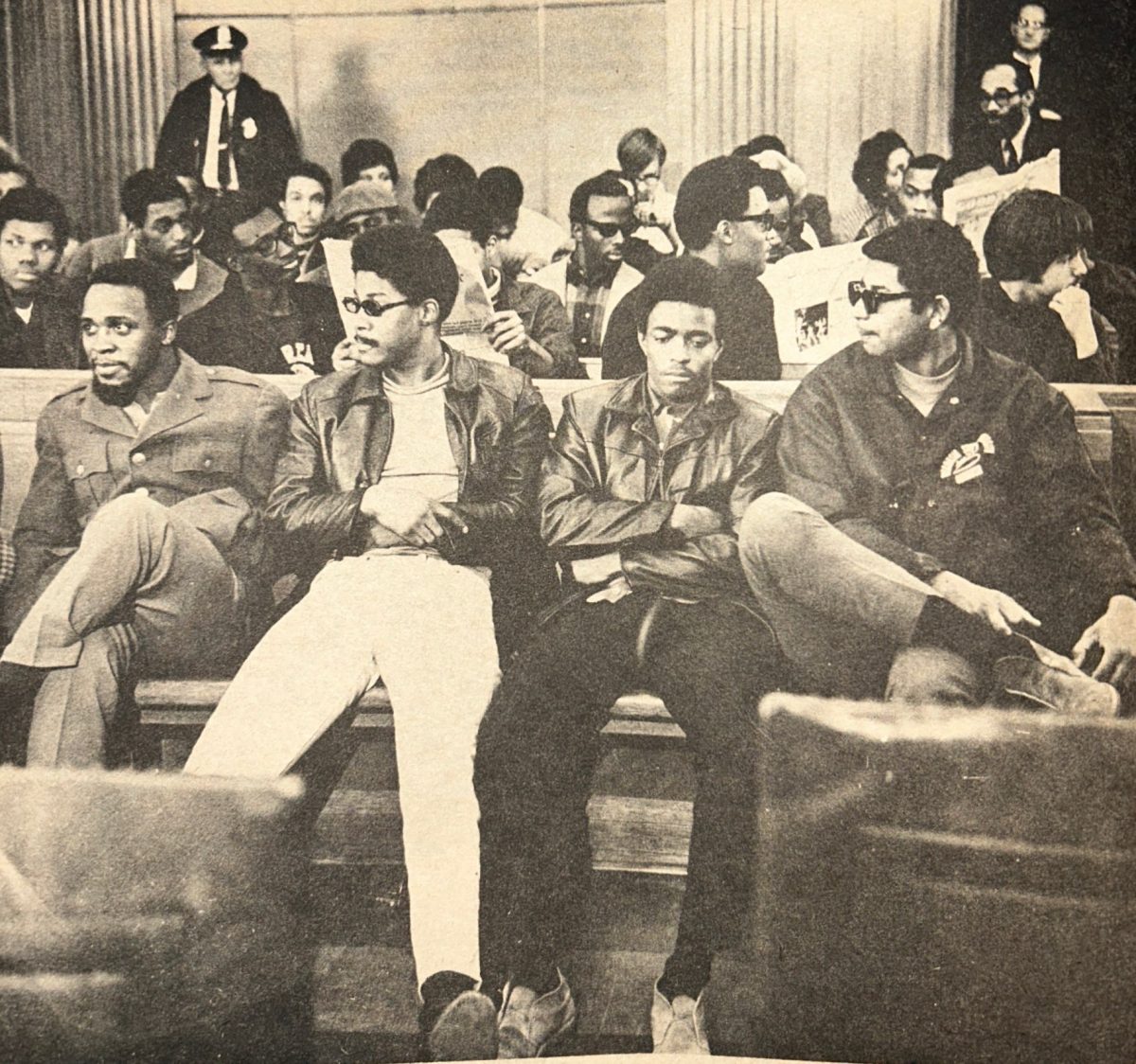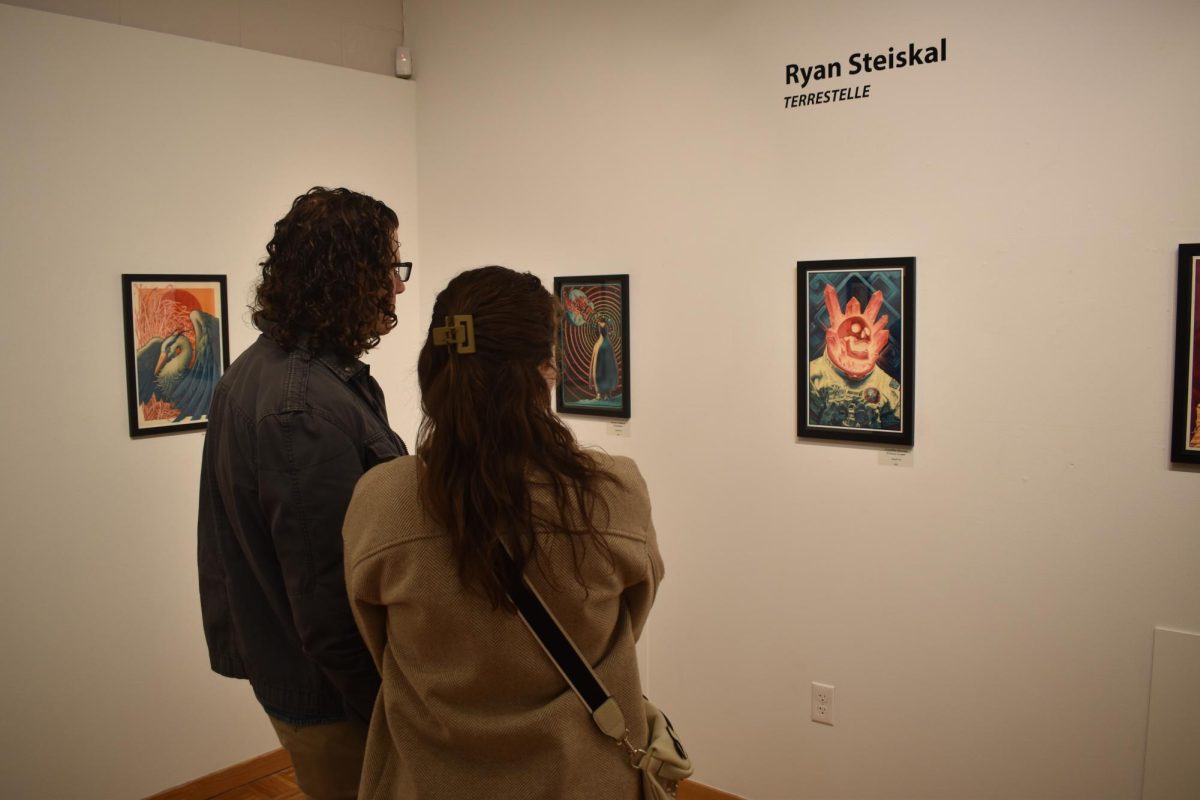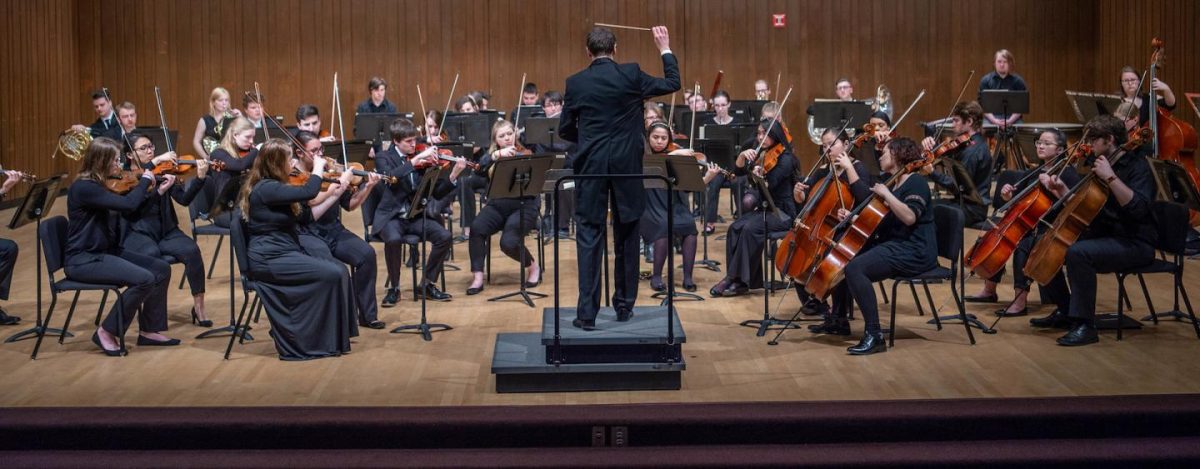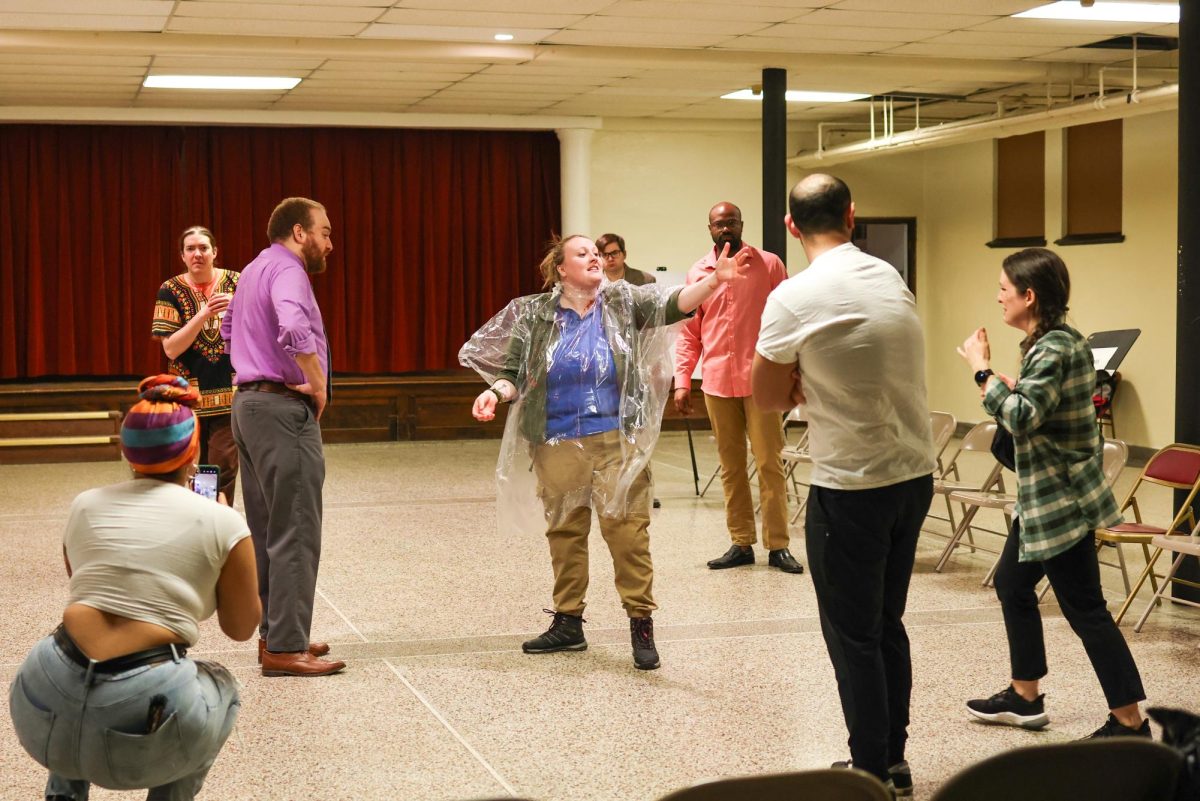UW Oshkosh’s theatre department opens its season with “Trifles” by Susan Glaspell, a classic American play that examines traditional gender roles while two women investigate a small-town murder.
“Trifles” and “Sometimes I Sing” runs on Oct. 6-8 at 7:30 p.m. and Oct. 9. at 2:00 p.m. at the Fredric March Theatre.
“Trifles,” which celebrates its 100th anniversary this year, takes place at the Wright home, where John Wright has been murdered. While the men search for evidence to convict Minnie Wright, the women piece together the life she lived with her husband.
Director Bryan Vandevender said
even though the play takes place a hundred years ago, the fact that it has endured for a century means what the piece says about gender roles is still relevant to today’s society.
“Gender inequality still exists,” Vandevender said. “The women are often dismissed, not being able to contribute to the investigation, when in fact it’s their knowledge of women’s work and women’s lives that helps to solve the mystery. That kind of knowledge is still not as valued as it should be and I think that the argument [the play] presents about women’s way of knowing the world is still relevant even today.”
Mary Celmenti, who plays Mrs. Peters, the wife of the town sheriff, said the battle between the sexes that the women in the play endure is still present today, even a hundred years later.
“The irony of the show is that the men feel like they’re the ones illuminating evidence, and truth be told, they’re actually the ones in the dark while the women find the source of Minnie Wright’s pain,” Clementi said.
Along with “Trifles,” playwright and Grammy-nominated storyteller Milbre Burch will perform her one-woman play “Sometimes I Sing” in tandem with “Trifles,” a follow-up piece that explores the life of Minnie Wright after her husband’s murder.
“Milbre is a very singular talent and I think audiences are going to be very moved not only by the story she tells but the way that she tells it, and the way in which she is able to make a murderess vulnerable and sympathetic,” Vandevender said.
Burch said “Trifles” touches quietly on the issue of abusive relationship, which is one of reasons she wanted to explore the world of “Trifles” further when she wrote “Sometimes I Sing.”
“‘Trifles’ is an indictment of the way men treated women before they were enfranchised with the vote,” Burch said. “Unfortunately some of that disenfranchisement still exists for women who are caught up in abusive relationships in a still patriarchal society.”
Vandevender said, in regards to the theatre department’s “A Wayward World” theme, “Trifles” subtlely explores the agents of change and chaos that can throw life out of focus.
“I suppose there are stories that we tell in which chaos and disorder are very visible and at the forefront of the dramaturgy, and there are pieces like ‘Trifles’ in which the chaos is more subtlety embedded in the storytelling and you have to peel back the layers to find it,” Vandevender said.
“Trifles” was ahead of its time, Vandevender said, because its playwright was not afraid to push boundaries in the early 20th century.
“[Glaspell’s] plays challenge conventional sexual relations, relationships between the genders and the kind of political and moral hypocrisy that undergird the American life,” Vandevender said.
Vandevender added that despite the weight of the material Glaspell compels her audiences to think about, she gives audiences a reason to believe that society can evolve.
“I think that in all of her plays there’s a firm belief in the possibility of a just and equitable world and that her characters are frequently critiquing systems of oppression and systems of inequality and that in some ways makes her ahead of her time,” Vandevender said.
Burch said Glaspell’s messages are timeless, carrying relevance from the time before Glaspell was a playwright to students today.
“Glaspell was a contemporary of my grandmother, Florence Mabel Gregg, who grew up in Minnesota, and like Glaspell [who] rose above the limits placed on her life as a woman at the end of the 19th century and the start of the 20th,” Burch said.
Clementi said although the play is simple, there is an air of suspense as the woman piece together the event leading up to John Wright’s murder.
“But my favorite part of the production is actually feeling the tension and the anxiety…” Clementi said. “It feels very real and that is the goal.”


